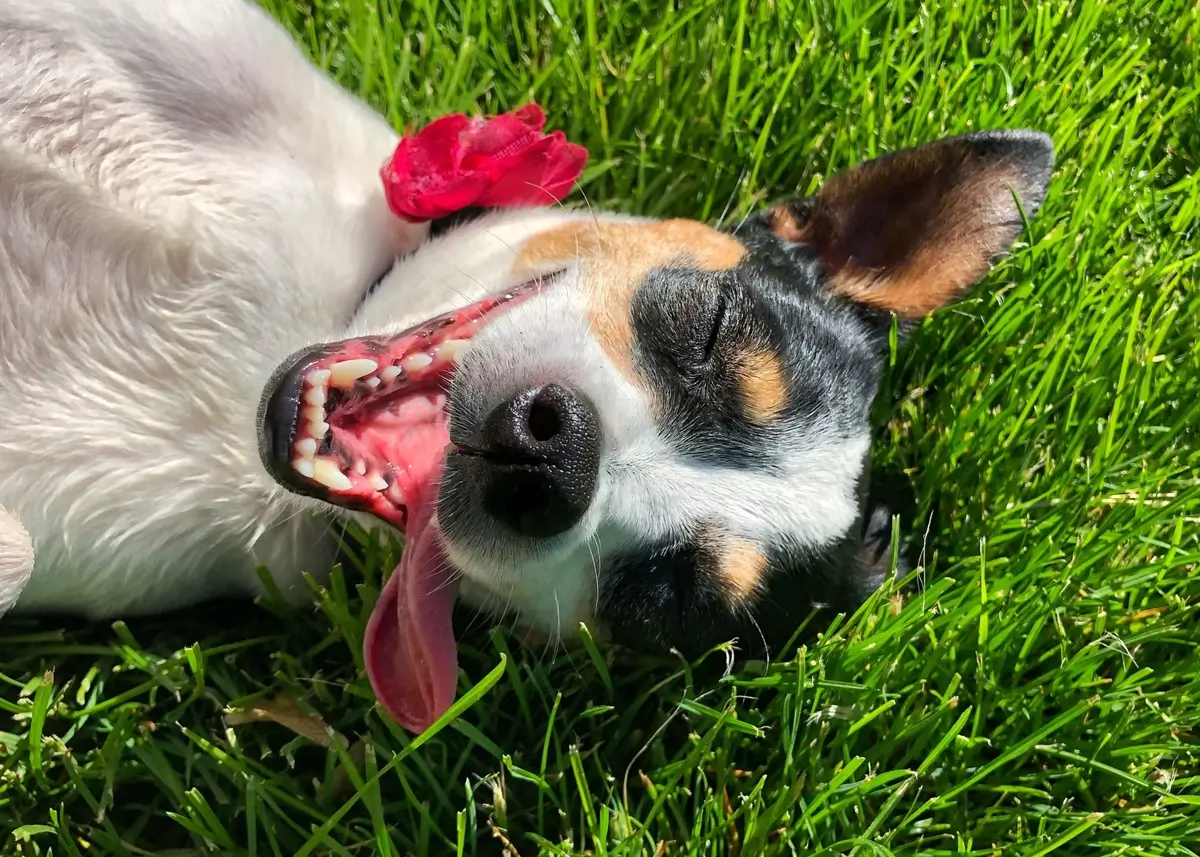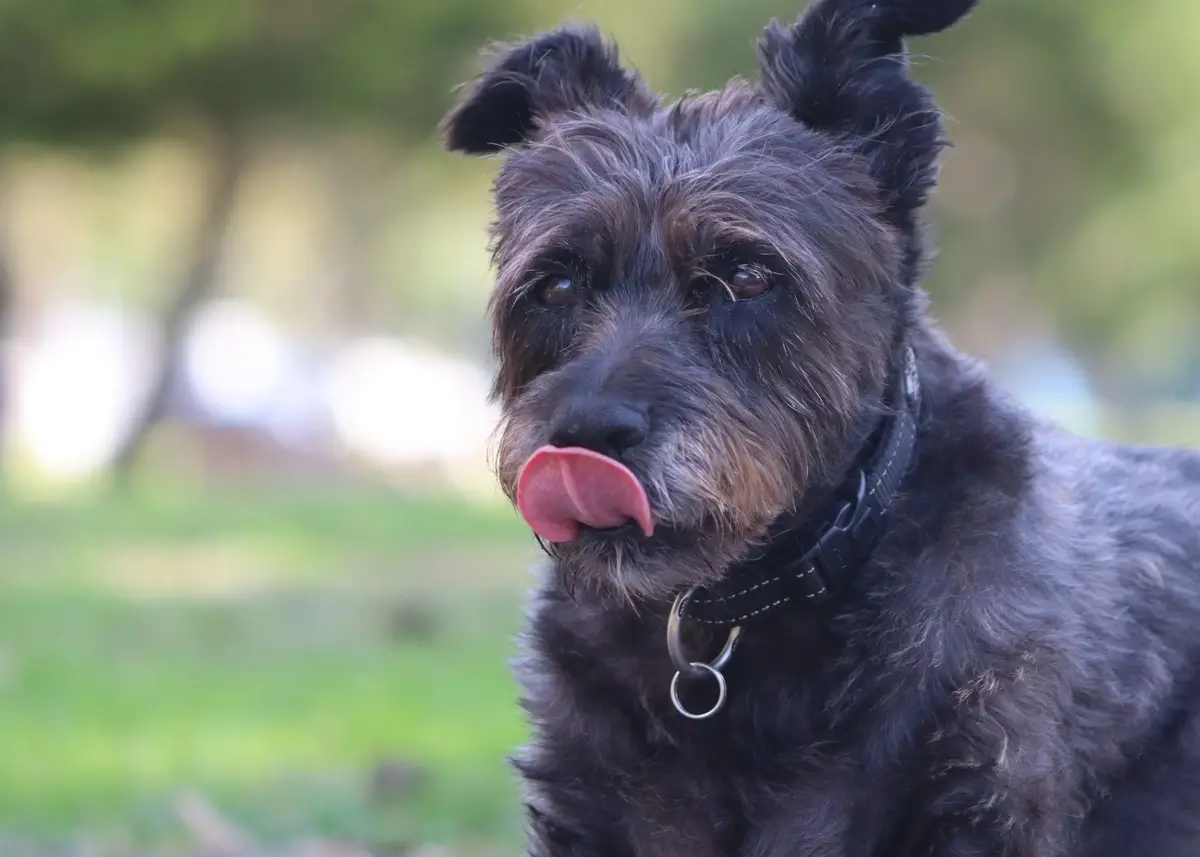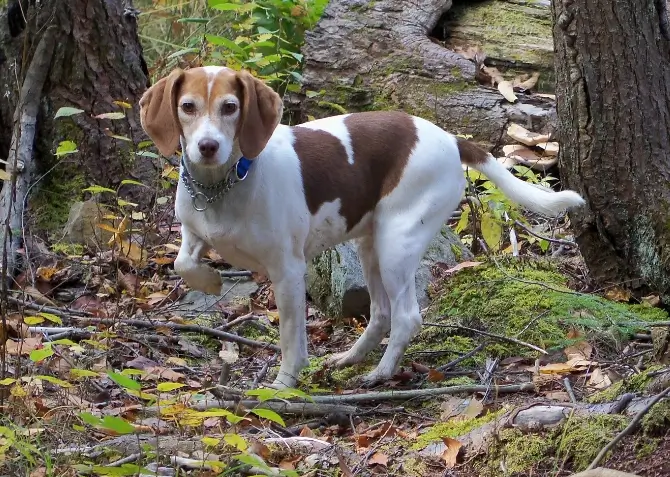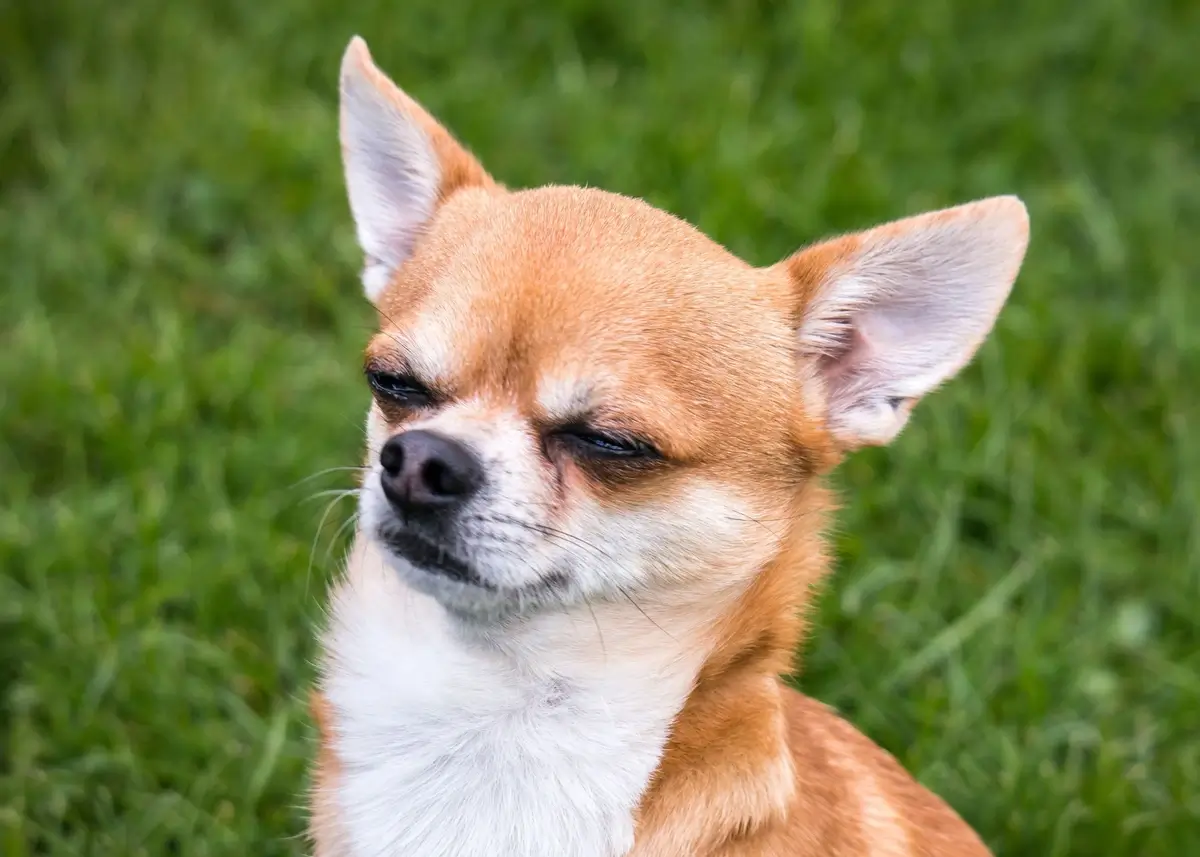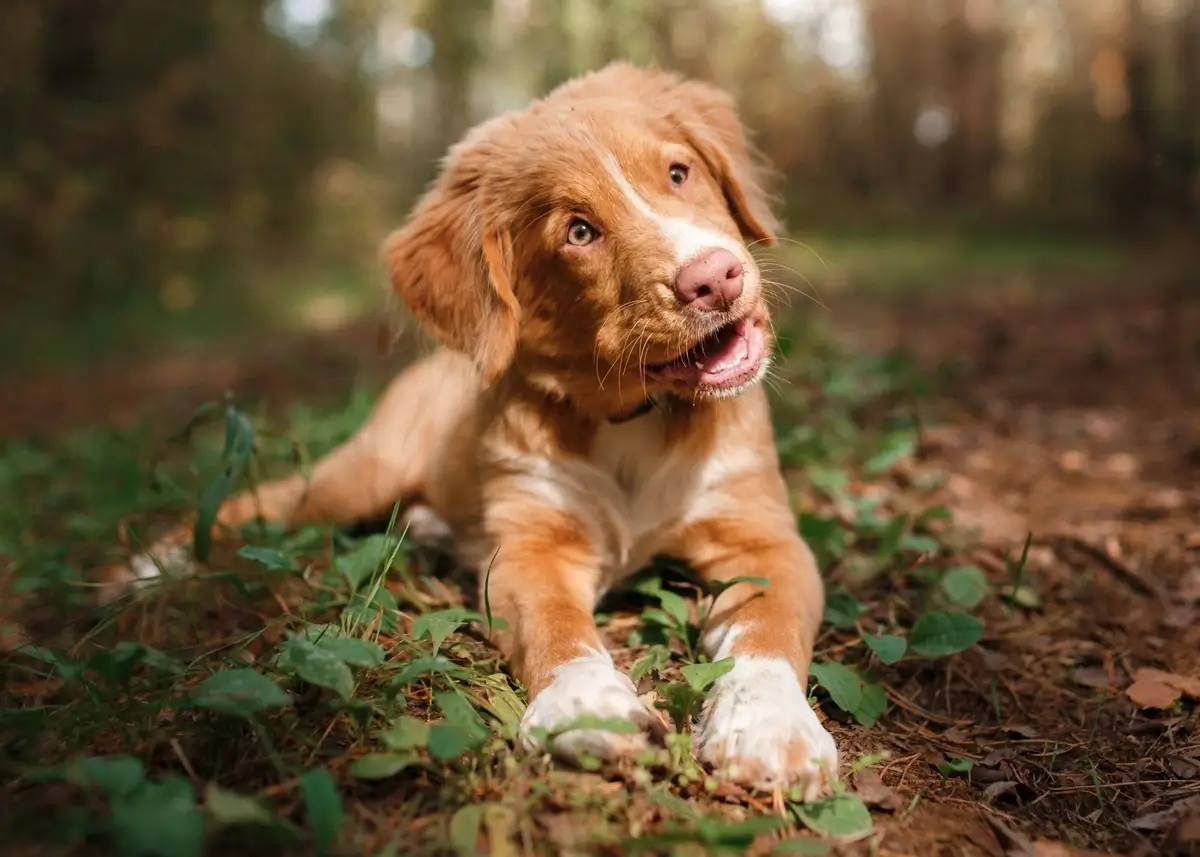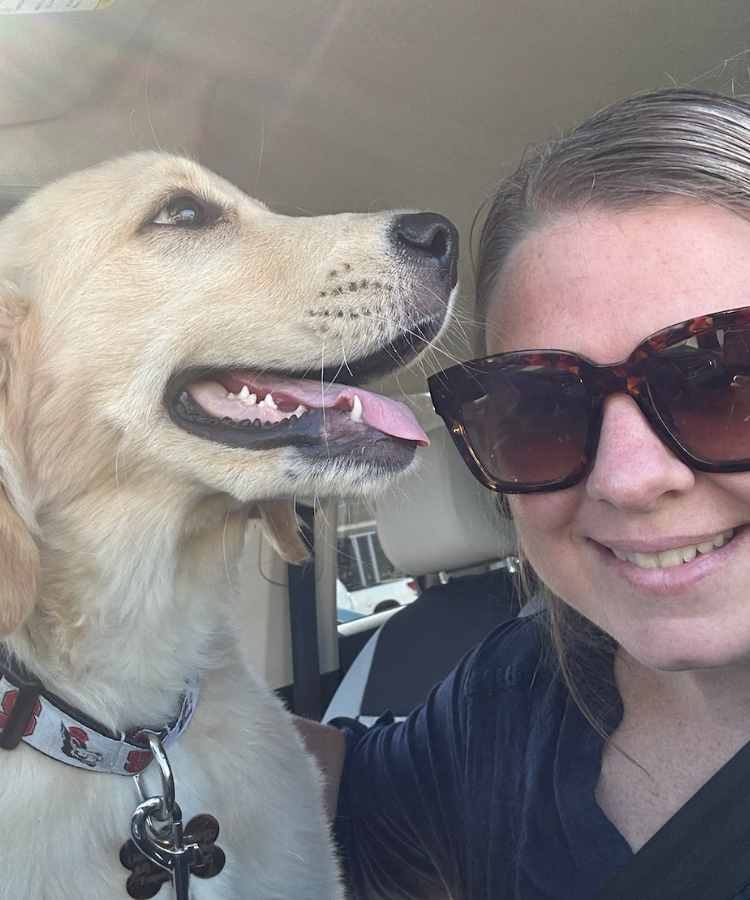The sunshine filters through the leafy, green canopy, casting dancing shadows on the ground. Your family and friends have finished with their burgers and hot dogs and have begun feasting on the brownies and Tootsie Rolls at the dessert table. “Ah!” you sigh contentedly. “Now THIS is the life!”
As you glance around enjoying this peaceful moment, you see your puppy eating something brown off the ground. “Oh, no! My dog isn’t supposed to have chocolate! That must be a rolled-up brownie or a Tootsie Roll!”
Dear Reader, it was at this moment that you realized it was neither a brownie nor a Tootsie Roll at the same time as your olfactory senses registered what was actually happening.
Your eyes, ears, and brain just cannot take it – your puppy has indeed eaten poop, your worst nightmare. “Nooooooooo!” you shout as you lunge toward your puppy in slow motion just like in the movies.
“Oh, no worries,” your friend says. “Poop happens.” This statement does not help your mood.
You walk inside to grab some cleaning products stronger than a decorative napkin from the food table. You are not prepared for what comes next.
Someone left the door open, and your puppy must have wandered in earlier unsupervised, dropping a fresh pile in front of your older model robot vacuum that was scheduled to clean while everyone was outside.
You know what happens next. We don’t even have to say it. All you can do is laugh and cry at the same time. But while you’re laugh-crying and pondering your life choices, your puppy runs in and can’t believe her luck that she is surrounded with her second dessert of the day. Her face, paws, chest, and front legs are now covered, and there she is, just licking and smacking like she’s at a Las Vegas all-you-can-eat buffet. “Great,” you think. “Now I have to burn down the entire house because there’s no way I can clean this up.”
Let’s face it – poop does indeed happen, especially with a puppy around. Learn why a puppy eats poop, what harmful parasites or bacteria can be in feces, and how to stop your dog from eating poop.
You Mean There are Studies and Surveys About Puppies Eating Poop?
Yes! Out of all the subjects to study in our great universe, there are people who are dedicated to scientifically observing and studying why dogs eat feces. In fact, the act of a dog consuming feces has a fancy scientific name called coprophagy or coprophagia, and the guilty party is called a coprophagic dog.
Puppies eating poop is perfectly normal. In fact, these scientific surveys and studies about dogs eating poop have found a few conclusions:
- To be defined as a poop-eating dog, dogs had to be observed eating feces at least 6 times or more.
- Out of 1500 responses, 62% of these dogs were described as eating poop daily and 38% weekly. That’s a lot of poopsicles!
- Observed dogs preferred hard, fresh stool over soft or old stool.
- Puppy see, puppy do: Single-dog homes reported 20% of dogs and 33% in homes with 3 dogs had the habit of eating poop.
- Most dogs were fed similar diets and were declared healthy whether they ate feces or not.
Coprophagy does not follow any known pattern “regarding dog age, sex, neuter status, age of separation from the mother, ease of house training, or numerous owner-described problem behaviors” according to veterinarian behaviorist Benjamin Hart from the University of California-Davis School of Veterinary Medicine.
Why Does My Puppy Eat Poop?
Whether your puppy eats her own feces or another animal’s, we humans are absolutely repulsed by the idea of this special substance ever being a delectable treat. “Whhhhyyyyyy?” you ask as you shake your raised fist at the sky.
It’s a Natural, Instinctive Behavior
A mama dam that has just given birth will eat her puppies’ waste for the first few weeks. Licking her puppies encourages them to eliminate regularly, and Mama does not want her babies to live in their own filth. Perhaps puppies just want to emulate what their mama is doing.
According to animal behaviorist Steven R. Lindsay, coprophagia “may be one of several appetitive survival behaviors that have evolved to cope with the periodic adversity of starvation.” When food isn’t readily available, you turn to what you have.
Lacking Nutrients in Diet
One of the common reasons why dogs eat poop is that they may be lacking certain nutrients in their diet. If you think your dog may be eating poop due to a lack of nutrients, speak with your veterinarian about changing their food. However, in the majority of cases, your dog is being fed a perfectly balanced diet and chooses to engage in that behavior anyway.
Fear or Anxiety
If your puppy eats its own poop, it may be afraid or anxious. Your puppy comes to understand that you have a negative reaction, so your puppy may gobble up the evidence so it doesn’t get in trouble. As difficult as it may be, summon every ounce of patience you have to refrain from yelling or harshly punishing your puppy out of anger when you find, shall we say, evidence of recent behavior.
Behavioral Reasons
As you know very well by now, puppies explore the world around them through their noses and mouths. Puppies love trying new things, and we know for sure you are not serving tasty frozen poopsicles as an after-dinner snack.
Another reason dogs may eat stool is out of boredom. Dogs who are bored often turn to destructive behaviors like chewing and digging. If you think your dog is eating poop out of boredom, try providing them with more puppy toys for mental and physical stimulation.
Your puppy may also be seeking attention. Eating stool will definitely get your attention alright, but not the positive kind your puppy was looking for!
Because They Like the Taste…or Just Because
Some dogs simply enjoy the taste of feces. While this may sound absolutely repulsive to us, dogs have different taste buds than we do, and what smells bad to us might smell good to them!
Lastly, the most infuriating reason of all is no good reason at all. That’s right – one of the world’s greatest mysteries could be about why your puppy eats feces.
What Harmful Parasites or Bacteria Could Be in Poop?
It is important to make sure that your dog's stool is not contaminated with parasites or other dangerous substances. If you are concerned about your dog's health, please consult with a veterinarian. Here are some common parasites and bacteria that can live in feces and cause health problems if your puppy ingests them.
Giardiasis
Giardiasis is an infection of the small intestine caused by the microscopic protozoan parasite Giardia duodenalis (also known as G. intestinalis or G. lamblia). The Giardia parasite that causes this disease is found all over the world in both fresh and salt water. The parasite is also found in soil and on surfaces that have been contaminated with feces from an infected animal.
Giardiasis can infect humans, but it is more commonly seen in dogs. Puppies are especially susceptible to infection because their immune systems are not fully developed yet. A puppy becomes infected with Giardia when it swallows the cyst stage of the parasite by eating or sniffing contaminated feces, soil, or water, where the parasite then transforms to feed on the intestinal wall. Five to twelve days later, the puppy then can pass on the parasite cysts through its feces, completing the cycle.
Symptoms of Giardiasis in puppies include diarrhea/fatty stool, dehydration, weight loss, and lethargy. If you suspect your puppy has Giardiasis, take it to the vet for a diagnosis and treatment plan. Early diagnosis and treatment are important to prevent serious health complications. It’s also important to control Giardiasis right away because it can pass from dogs to humans.
Cryptosporidiosis
Another infection causing harm in puppies transmitted through eating feces is Cryptosporidiosis caused by ingesting the intestinal parasite Cryptosporidium through contaminated water, food, or feces.
Puppies infected with Cryptosporidium exhibit fever and diarrhea, food intolerance, lethargy, weakness, and sometimes even organ failure.
Coccidiosis
Coccidiosis is an intestinal tract infection caused by a single-celled organism (protozoa) called coccidia. Your puppy becomes infected when it swallows oocysts (immature coccidia) that are found in contaminated dog feces and soil. Coccidia are very resistant to a wide variety of environmental conditions and can survive for some time on the ground, even up to one year!
If your puppy is infected with Coccidia, it may be exhibiting foul or discolored diarrhea. Because it’s highly contagious and the fact that Coccidia is really hard to kill in the environment, it’s important to pay attention to what your puppy is getting into and know the signs of a parasite infection.
Bacteria in puppy stool
If you do not pick up your puppy’s stool regularly, you’re causing potential health hazards for both public health and the well-being of the animal population. Puppy stool can contain harmful bacteria in humans and other animals including Campylobacter, Salmonella, Yersinia, and E. coli which are pathogens for the intestinal tract and cause diarrhea, lethargy, dehydration, and infection in other parts of the body.
Should I Be Worried If My Dog Eats Poop?
If you see your dog eating poop, in most cases, you should not be too worried as long as they are otherwise healthy and have a good appetite.
You may want to call the vet under a few circumstances. If you know your puppy got into waste that doesn’t seem to be from another dog and possibly a wild animal, a phone call is a fine idea.
If eating stool is not the norm for your dog, and you have an older dog or one that is not acting normally, your dog might have underlying medical issues that need attention.
If your dog is exhibiting symptoms of a parasite or bacterial infection, then yes, it’s definitely a good idea to call your veterinarian for advice and the next steps. He or she may order a fecal exam to see what might have been transmitted to your puppy.
How Do I Get My Puppy to Stop Eating Poop?
You must be tired of googling all the ways to clean a stinky puppy if you just can’t shake the smell. If your dog seems to enjoy eating stool, unfortunately, we have to deliver some bad news. There's not much you can do about it other than by doing your best to keep the yard clean and avoid unsupervised or unleashed play.
Skip the products
Back to the studies mentioned above, researchers found that “of 11 commercial products including Coproban, For-Bid, Dis-Taste, Deter, and Potty Mouth, the reported success rate for food additives or tablets marketed for coprophagy ranged from 0 to 2%." As appealing as it is to have an easy solution using one product, don’t get your hopes up too much.
Try out some training commands
The command “Leave it” can come in really handy for tempting, steamy piles. Likewise, using the “look” command will train your puppy to focus on you during defecation so it does not get distracted when it’s taking care of business. However, you have to be vigilant and train for excellent behavior from your pup.
Keep it clean
The easiest way to avoid parasites and bacteria is to keep a clean inside and outside environment for the dog. Pay attention to your puppy to keep it away from any piles of animal elimination, dirty standing water, or getting into any substance it shouldn’t. Pick up any fresh or old waste piles and dispose of them immediately and properly.
Pawrade Understands Normal Puppy Behavior
When you are browsing puppies for sale on Pawrade, each puppy comes from a hand-picked, pre-selected breeder. Our partner breeders are extremely knowledgeable about raising puppies and are happy to pass along some tips and share their expertise about normal puppy behaviors they’ve learned along the way. Let us help you find your forever friend!
